Tag Archives: education
Inspired by Educated by Tara Westover
Over Spring Break I finished reading Educated by Tara Westover. The memoir is about a young woman’s journey from her religious family to higher education. The book has several themes. There are areas that focus on identity, family, faith, education, etc. The book really resonated with me for several reasons, but the area that really resonated with me the most was the power of education in the author’s life and how it helped her to evaluate who she was and discover the woman that she is today. Her ability to go through this process is really due to her education inside and outside of the classroom.
A huge part of my identity revolves around education. Just like the author, I was able to discover who I am and who I wanted to be in life. My parents encouraged all of their children to get an education, they believed that they were the keys to success. I thrust myself into my studies and quite a few of the lessons I learned came from inside and outside of the classroom. As educators, we must never forget the impact the classroom has on not only our students and their profession but also who they are as an individual. The author learned a lot about herself inside and outside of school. Here are some things I learned about myself from my educational experiences:
I didn’t want to be a lawyer when I grew up. For the longest time I wanted to be a lawyer. We did a mock trial in high school and I realized, THIS IS NOT FOR ME. I played the lawyer and I choked. My heart was not in it. My heart is in teaching.
Hard work and belief go a long way. I believe I’ve mentioned this before, but I was not the best speech and debate competitor in college. I lacked confidence and some key skills. Over time I decided to up my work ethic and to really believe that I could do it. The end result, I have some championships under my belt and I’m proud of that accomplishment.
I’m a nerd and I’m proud of it. I love school, reading, studying, and watching and engaging in nerdy things like Game of Thrones. I have reaped many benefits and rewards from my nerdiness. I even include it in my lessons in the classroom.
Prayer and Coffee. Ever since high school, people have mentioned to me how they can’t believe how I get through the crazy business of life. I tell them that I get through it with a whole lot of prayer and a whole lot of coffee. Both came from my family. I grew up in a religious home and everything revolved around prayer. The coffee came from my mom, she loves it, I picked up the habit my senior year of high school and I have not let it go. Prayer and coffee are my lifeline. =>)
Life will hand you some serious lemons, make the best batch of lemonade you can, and drink a giant big gulp cup of it in front of life. I’ve drunk several big gulp cups of lemonade in front of life. I’ve done my best to make the best lemonade from some sour lemons in life. I’ve had uncertainty and struggles with school, work, and health, but I’m thankful that lemonade has come from that. I’m grateful.
The lessons learned are only a small portion of the things that have shaped me. All of the lessons learned, just like the author in Educated, have contributed to who I am today, and I wouldn’t change it for anything.
The Reimagine Project Dares to Lead
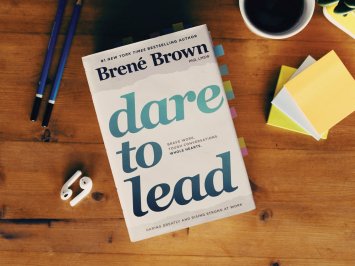 I am proud. I am proud of the leadership of GCC faculty and staff. Over the past few months I have seen faculty and staff courageously offer their thoughts and opinions of how to improve our district, campus, and our classrooms. The work of GCC faculty and staff have resulted in committees being created, campus calls to action, panel discussions, task force, etc. I wish I had the time and space to call everyone’s attention to several things that represent the sheer amount of tenacity, passion, and courage on our campus. I only have the time and the space to focus on one thing, so I will focus on the Reimagine Project.
I am proud. I am proud of the leadership of GCC faculty and staff. Over the past few months I have seen faculty and staff courageously offer their thoughts and opinions of how to improve our district, campus, and our classrooms. The work of GCC faculty and staff have resulted in committees being created, campus calls to action, panel discussions, task force, etc. I wish I had the time and space to call everyone’s attention to several things that represent the sheer amount of tenacity, passion, and courage on our campus. I only have the time and the space to focus on one thing, so I will focus on the Reimagine Project.
The Reimagine Project is a project that centrally focuses on encouraging faculty to reimagine their classrooms with high impact classroom strategies. I am one of the individuals responsible for teaching our cohorts a specific strategy and assisting them with implementation in the classroom. The program was launched this academic year. The purpose of the project is to encourage faculty to try these strategies so that we can create the best learning environments that we possibly can for our students.
The Reimagine Project is daring to lead because they are addressing an important question from Brene Brown’s book, Dare to Lead, which is: How do you cultivate braver, more daring leaders, and how do you embed the value of courage in your culture? Brown proposes doing it through vulnerability, values, trust, and learning to rise. Participants have to be vulnerable, which means being open to the process and trying new things in the classroom that they have never tried before. The program also encompasses all of GCC’s values which includes learning and quality. Participants also have to trust themselves and trust the facilitators guiding them through the experience. Finally, participants have to learn how to rise because they may experience failure along the way, and failure is not completely negative, it’s actually a lesson in disguise.
Shout out to to Jennifer Lane and Meghan Kennedy for creating the nuts and bolts of the program. Shout out to the institution for the support. Shout out to the participants who are engaged in the program. Shout out to the leads for guiding the participants through the strategy. I dare everyone to follow in their footsteps and dare to lead in the places and spaces of their profession. If you are already Daring to Lead, I encourage you to keep leading in this way, because you are having impact in the work that you do.
42
What do bananas, Bonytail Chub, and teaching have in common? Prepare to get my take on life, the universe, and everything…
In my hastily written (and grammatically unsound) post on inclusion, I had two major regrets. The first was the aforementioned text level grammar (my only defense was that I did write it on a phone). The second was that the focus on the importance of inclusion and how it relates to title bias prevented me from talking about a related issue that fundamentally defines my personal world view: Diversity.
I love bananas. They are easy to eat, versatile to bake with, and potassium helps keep my blood pressure regulated naturally. Bananas also served as an important lesson in diversity. Currently, bananas are in danger of extinction. Even though most of the concern is recent, the situation has been long predicted because of the reliance on just a few varieties of the crop. Pre-1950 there were two main varieties in stores. Then Panama Disease devastated the then common Gros Michel variety, which made Cavendish the most likely banana you would purchase in the store today. The lack of diversity in the banana crop made it ripe for an extinction-level problem. There is now a real chance my breakfast of choice won’t be available for the next generation. Foresight into maintaining the diversity of the bananas, even if some of the varieties weren’t as “commercially ideal” as a cash crop, would have resulted in an easier solution to the possibility of extinction.

If you haven’t been keeping up on the amazing progress made in science in the last decade, you would be amazed (or horrified) at the godlike possibilities. The good news: those that worry about the human race ending in the next twenty years can take some consolation in the fact that we are a fairly inventive lot, and when push comes to shove can do some incredible things. The bad news: we really work best with templates, and as the banana issue shows, humanity often gets a failing grade in foresight.
Enter the Bonytail Chub, a cute fish native to the Colorado River system. Due to climate change and invasive species this little fellow (and many other native fish species) are also in danger of extinction like my beloved banana. Where the negatives of losing bananas are easy to digest, the negatives of losing the Bonytail Chub (and its many relatives) may not be as clear. Clarity is exactly the problem. Bonytail Chub’s live and thrive in muddy backwaters. Where many fish do best in clean fresh waters, the Bonytail Chub’s ability to live in less than ideal conditions make it unique. Remember how bananas wouldn’t be in their predicament if less ideal varieties had been maintained? With the very real (and aggravatingly rarely talked about) problems of dwindling freshwater supplies and water rights, having a species that contains the genetic puzzle pieces that allow it to thrive in poor water conditions could end up being what is required to save other species (moral questions of genetic manipulation aside).

Bananas and Bonytail Chubs are just two examples showing the importance of diversity in the natural world. Diversity is just as critical in every other aspect of life, including one that most of you reading this might be more familiar with.
Teaching is not a zero-sum game. I spend quite a bit of time every week creating videos for my classes to explain the objectives for the week and recap issues from the previous week. I know from analytics that only a third of my students actually make use of these videos (even less if the videos are too long), but those that do have given me consistent feedback that the videos are a major help to them. In the same respect, some students respond well to written feedback and instructions, and others do best in group work settings. In thirteen years of teaching, I’ve learned that one lecture does not fit all. One assignment or delivery is not the end game. Everyone learns and excels in different ways, so trying to maintain a balance of approaches is important to success. In other words, educational diversity.
Over the last three years of writing on 6×6 I have often eluded to how one of the most important aspects of critical thinking is to be open to new ideas, my hope is that this post will explain my belief structure behind that advice. Simply put: diversity is the answer to almost every problem.
Educational diversity results in higher success rates for students.
Economic diversity fosters resilience during downturns.
Cultural diversity leads to a better more understanding society.
Biodiversity is key to the survival of the planet and the species that reside on it.
So next time you are sipping a cup of tea under a star-filled sky contemplating the meaning of life, the universe, and everything appreciate the fact that there is probably more than one answer and more than one question, and that is a very healthy thing.
Interviewing Tour
The writing prompt for Write 6 x 6 this week asked this question:
What would you love to be able to do to improve yourself in relation to your job or to change your job?
I would love to interview teachers from different professions in MCCCD, the state of Arizona, the U.S. and around the world. I want to talk to teachers who teach higher education, or karate, or piano, or knitting. I want to get a collective sense of why they are teaching , the keys to successful teaching, and what they love most about it. I would love to pull from their experiences and get a sense of what drives them everyday.
I just watched a You Tube video that’s an oldie, but a goodie, from someone known as the Kid President. The videos on this channel never get old, and is usually a good go to when my work week has been crazy and I haven’t had enough time to work on my blog post. In the video Kid President’s Pep Talk to Teachers and Students! He asks a central question I’d ask in all of my interviews: What are you teaching the world?
Have you thought about that? What are you teaching the world? I would love to jump into that question and unpack it with others in an interview. I feel their answer would really inform mine and would help me to grow as a person and as a professional.
Titles VS INCLUSION
My colleagues have already done an excellent job of breaking down inclusion and how to accomplish it in an academic setting.
Rather than echo what was already stated, I wanted to briefly discuss one of the barriers to inclusion: titles.
Titles, or labels, are either earned or given by society. Sometimes they relate to our cultural background, sometimes they relate to our level of education, and other times they simply seem to be bestowed without reason.
I do want to be clear. There is nothing wrong with having a title as a way to identify function or purpose. After all, most of us are professors, a title that denotes our specialization in the education of others in a particular field.
Most positions have a title: Biologist, Commissioner, Dean, Director, Doctor, Mayor, President, Professor… the world is not wanting from a lack of titles.
In their multitudes, however, titles have become barriers to inclusion as they are used to judge others or ourselves.
I have struggled to combat this thought process, the idea that someone is better or worse, smarter or less educated, simply by the title they carry. If a County Commissioner was at odds with a Level I Planner, or a Dean was at odds with the parents of a student, my initial inclination, without knowledge of the situation, was to side with the higher title.
On a personal level, I have seen others change their opinion of me, almost immediately, after finding I had gained or lost a certain title.
The problem with titles is that within each one there is an incredible range of talent, expertise, and intelligence:
Think about all the medical doctors you have ever met.
Were they all equally talented? Knowledgable?
Of course not. Yet, they have the same title, and sight unseen there is a tendency to put all doctors on the same level.
Categorization without knowing. The antithesis of inclusion.
Although I am personally still working on breaking free of title bias, I can say the first important step is to realize that titles denote a function, not intelligence, kindness, or capability.
They merely answer the question “What do you do?” not “Who are you as a person?”
As long as I can remember that, I know I am on my way to becoming a more inclusive individual.
Inclusivity = Pronouns
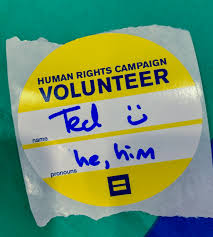
When I first started as Residential Faculty I kept encountering students who identified as transgender and they would let me know their preferred pronouns. When they approached me I gave off the appearance of knowing what they were talking about, but I had no clue. I have to admit that I felt a little ashamed not knowing, I consider myself to be a pretty woke person and I realized that I was clueless in this area. So what did I do? What any teacher would do, I educated myself on the subject and I realized there was even more that I didn’t know.
On my quest for education, I googled “What is transgender?” I found myself on the transgender FAQ page for GLAAD, an organization that centrally focuses on acceptance of the LGBTQ community. They not only explained what it means to be a transgender person, they also had headers like “What name and pronoun do I use?”, “How do I treat a transgender person with respect?”, “Why is transgender equality important?” How did I not know this? One thing that stuck out to me was the sentence where it mentioned the anxiety a transgender person could experience when they are associated with the birth name they do not identify with. After visiting the page, I visited other sources that would help me to understand my students even more. I went even further and attended a workshop at SMCC where the focus of one of the break out sessions was gender identity, expression, and the LGBTQ community.
One thing that is important to me is creating and cultivating a positive, constructive learning environment for EVERY student. I currently address students by their preferred name and pronoun of he/him/she/her/they/them. At the end of the day it’s not about me, it’s about the student and their experience in the classroom. I’ve been doing it ever since I started my journey into educating myself about transgender people years ago. On the first day of class, I ask my students to let me know if they have a preferred name/pronoun during roll or after class so that I can address them appropriately. Students do mention it during roll, or come up to me after class and let me know their preferred names/pronouns.
Now some real talk, it took me a moment to adjust. There have been moments in the first couple of weeks where I accidentally call my students their roster name or I get the pronouns wrong. There was a moment in one class when I did that and I talked with the student after class and apologized, and let them know that I didn’t mean any disrespect in that moment. Despite my mistakes, I think what matters most is that I’m trying and I’m continuing to learn and grow. I’m making an effort to create an environment where students feel like they matter and feel like they are included.
Inspiration From Kindergarten Through College
I am someone who is inspired by so many different things in life. I was recently inspired by the Netflix Series Cheer. In what way? Well, that’s another blog post for another day.
The two consistent things that have inspired me the most are my former teachers and my mentors. Some of these individuals have played the role of both the former teacher and the mentor. Who I am today and the work that I do is representative of the key individuals who have crossed my path in education. Below you will find six lessons learned from teachers/mentors, that I apply in the classroom and my life.

Kindergarten Teacher: The only thing that limits you is your imagination. I learned this when we had green eggs and ham in class. We read the book and my teacher made it a reality. My little mind was blown and the food was delicious!!!!

4th Grade Teacher: No matter how behind you are, you can always catch up, you gotta work a little harder, but you can make it. I learned this when I transitioned from one school district that was lagging into another school district that was way ahead of where I was at. I caught up eventually, but it took a little bit of time.
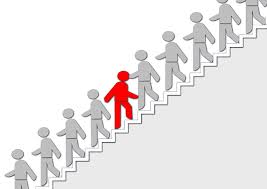
High School Theater Teacher: Go against the grain and take risks. My high school theater teacher always had us involved in work that was not typical for high school students. We did Shakespeare (A Midsummer’s Night’s Dream) and Greek tragedy (Antigone) and adult work like A Few Good Men and A Lion in Winter. The same attitude was also placed in our speech pieces since he was our speech and debate coach. I also learned that, no one is above or below anyone else. We were taught to respect each other as actors and tech people. Everyone contributed to building the set, the production of the play, and tearing down the set. No one was allowed to talk down to each other or treat anyone as less than because of their “status”.
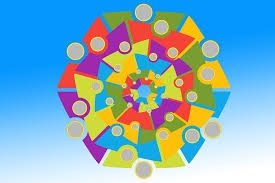
High School Multicultural Club Adviser: People are different, but there is so much that we could offer each other in this world if we would just take a moment to listen to each other and learn from each other. All we need to do is to get out of our own way. I am so thankful that I was a part of this club. In high school I learned about the importance of diversity and inclusivity. We also learned about the barriers of racism, sexism, ageism, homophobia, etc. I had the opportunity to serve as the President of the club and as a counselor for our multicultural camp Rammietown. The experiences I had then, still impact me to this day.

College Speech and Debate Coach/Mentor: The most successful people in life are those who combine talent with hard work. When I started speech and debate in college, I was not the most talented person. I lacked a lot of confidence and felt like I was pretty small compared to the big competitors on the team. Many came in with several titles and I had one. I was absolutely terrified in many of the practices I had my first year because I felt like I was completely exposed and that everyone could see my weaknesses on the team. Despite my insecurities, I kept working hard, while those who were naturally talented, just coasted on their talent. I continued to get better and eventually surpassed some of them. I eventually became a multi national and international champion. I discovered that I had some talent, but what separated me from everyone else was how hard I worked. I never want to be wasted talent.
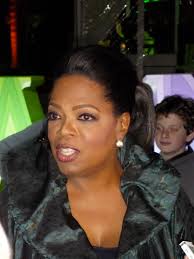
College Professor/Mentor: Be excellent in everything that you do and how you live your life. I am a firm believer in excellence, it aligns with our campus value of quality. I try to strive for excellence in my personal and professional life. Like Oprah has said ” Excellence is the best deterrent to racism, sexism, etc.,” but it also brings me joy and pride. When people enjoy my work, I have joy and pride because I did my best work, and the end result is the most satisfying. My college professor is an embodiment of excellence. They taught me the importance of putting your best foot forward in everything that you do.
I have so many more that I could share. The list goes on and on. I’m sharing this because what we do in the classroom matters. As instructors we must never forget the impact that we have on our students. The list above shows the impact we can have on our students.
2020 Vision
The world has changed dramatically in the last twenty years. It is difficult to fully grasp the increase in access to information, and with it, misinformation.
Education has a responsibility to try and keep up with this exponential growth in access.
If this responsibility is taken on a case by case basis it becomes impossible. Even the most gifted teacher can’t fact check the firehose of information and media being fed to students (and every internet user) on a daily basis.
So how can educators avoid getting stuck in a perpetual Sisyphus style loop with correcting misinformation?
There is an old, now cliché, saying: Give a man a fish, and you feed him for a day. Teach a man to fish, and you feed him for a lifetime.
Modified: Provide someone a truth, and you correct one lie. Teach someone to pursue truth, and you keep them from a lifetime of deception.
Teaching students (or anyone) to recognize fact from falsehood is not an easy task. There are a dozen different forms of bias that serve as barriers to the truth, some of which are variants on the traditional forms of bias we think of as educators.
Last year I was at a Town Hall meeting on the possibility and impact of new low-income housing. The audience could be described as hostile. At one point in the presentation, there was a slide showing cited figures disproving the notion that “low-income” means “more crime”. At this point, one of the audience members stood up and proclaimed, phone waving in hand, that that information was inaccurate because “He just Googled it”.
“I Googled It” Bias (a variant of anchoring bias) is just the tip of the iceberg. Where Google has at least considered filtering for accuracy over relevance, social media platforms have generally taken the opposite approach. This blatant disregard for accuracy is especially dangerous because, according to Forbes magazine, 64.5% of internet users receive breaking news from social media.
Social media is an addiction, and like all addictions, expect a fight when trying to wean people away from it. The path of least resistance here is not to go after social media altogether (I’d struggle to give up /aww on reddit), but rather educate that social media shouldn’t be a primary, or even secondary, source of information. At best social media should serve as a tertiary form of information, it should provoke the thought of “Is this true?” rather than “This is true.”.
The next step goes to my old rallying cry around critical thinking skills:
- Always consider both sides of the issue
- Question, no matter the source
- Look for currency, credibility, and bias
The first thought when reading any information shouldn’t be “What is being said?”, but rather, “Who is saying it?”. Most importantly, find multiple sources for the same piece of information.
This notion especially holds true when educators start thinking about “quality sources”. One of the dangers in academia is the sometimes blind faith put in peer-reviewed journals. Unfortunately, there have been multiple cases, with some even causing societal belief shifts, where data published in peer-reviewed journals are later found to be false.
As difficult as it may be, both educators and students have to acquiesce to the notion that some facts can be fickle. The understandings of society, history, and science are usually “best guesses”, but that should not dissuade from the pursuit.
In the end, it is the pursuit of truth that should be the primary focus of education. Every teacher should strive to show students how to limit social media’s influence, avoid bias, and apply critical thinking. These skills will prove invaluable long after a student graduates, and well into whatever era comes after this age of information.
Iyanla Vanzant Says You Matter
 Many people know that I love Oprah! I am of course subscribed to her podcast Oprah’s Super Soul Conversations. Yesterday I listened to the episode: Iyanla Vanzant: You Matter. Iyanla Vanzant is a woman who helps people overcome some major issues on a show on OWN called Fix My Life. When I saw the title of the podcast I had to listen and I was not disappointed. It perfectly aligns with what I have been talking about for the past few weeks. If you get a moment to listen, check it out.
Many people know that I love Oprah! I am of course subscribed to her podcast Oprah’s Super Soul Conversations. Yesterday I listened to the episode: Iyanla Vanzant: You Matter. Iyanla Vanzant is a woman who helps people overcome some major issues on a show on OWN called Fix My Life. When I saw the title of the podcast I had to listen and I was not disappointed. It perfectly aligns with what I have been talking about for the past few weeks. If you get a moment to listen, check it out.
The statement that stuck out to me the most was:
“…we get our meaning and our mattering from our story and if we tell a story in a way that disempowers us we won’t know that we matter…..”
When she said this in the podcast it made me think. How many of our faculty, staff, and students have created stories in their heads that discourage and disempower them? Stories of discouragement and disempowerment prevent them from realizing that they matter. If their story includes people who tell them they are not good enough or that they will never amount to anything or that they are not good at reading, writing, or math, it will not only impact them but also the people who serve them. When I work with a student one on one and they express frustrations and are really tough on themselves I will think about what Iyanla says. What story are they telling themselves and what does it mean to them? How is it impacting them in the classroom?
How can we have stories that empower us and helps us to create meaning so that we feel like we matter? One way to do this is to pay attention to the people who are in your lives and what they tell you on a daily basis. Being surrounded by people who tear you down makes it difficult to build yourself up. Another way is to stop comparing yourself to others. I mentioned that in a previous post. We have a tendency of tearing ourselves down when we don’t feel like we measure up.



